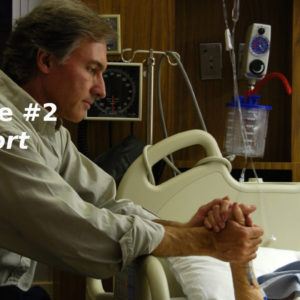Introduction
Pastoral care and chaplaincy are vital missional approaches that embody Christ’s love in diverse and complex contexts. As society grows increasingly multicultural and multifaceted, pastoral care workers and chaplains must adopt approaches that are not only theologically sound but also contextually adaptable. These ministries demand compassionate communication, cultural sensitivity, advocacy, collaboration, and a commitment to fostering spiritual resilience. This essay explores five key approaches to pastoral care and chaplaincy, each grounded in Scripture and applicable to the varied challenges of modern mission. Each approach emphasizes the integration of biblical principles with practical strategies, ensuring holistic support that addresses emotional, spiritual, and physical needs.
1. Culturally Sensitive Well-Being
This approach centers on creating plans for holistic well-being through active listening, spiritual discernment, and collaborative dialogue with individuals and the broader community. A missional leader following this model prioritizes understanding the unique cultural, emotional, and spiritual contexts of those they serve. Active listening ensures that voices from diverse backgrounds are heard, while spiritual discernment allows the leader to seek God’s guidance in designing plans that align with His purposes. Collaborative dialogue fosters mutual trust and ownership in the process, ensuring the community feels supported and valued. The ultimate goal is to create culturally sensitive plans that holistically address physical, emotional, and spiritual needs, reflecting Christ’s compassion and care.
Biblical Illustration
Nehemiah’s leadership in rebuilding Jerusalem’s walls highlights the process of creating plans for holistic well-being. After learning of his people’s distress, Nehemiah responded with prayer and fasting, seeking God’s guidance before taking action. When he arrived in Jerusalem, Nehemiah first assessed the city’s condition, ensuring he understood the needs fully. He then engaged the leaders and citizens, presenting a vision for restoration: “Come, let us rebuild the wall of Jerusalem, and we will no longer be in disgrace” (Nehemiah 2:17). This appeal united the people in a shared mission. Nehemiah’s approach addressed multiple aspects of well-being. Rebuilding the wall provided physical security, while the collaborative process fostered emotional resilience and unity. Spiritually, the project symbolized a renewed relationship with God. His leadership reminds modern, missional leaders to ground plans in prayer, engage the community, and integrate physical, emotional, and spiritual dimensions into their strategies. For missional leaders today, Nehemiah’s story illustrates the importance of assessment, collaboration, and a clear vision in crafting plans that promote holistic well-being, reflecting God’s restorative work.
Application for Missional Careers in Pastoral Care and Chaplaincy
- Healing Through Listening
A pastor care provider conducts a series of listening sessions with members of a multicultural congregation to understand their unique spiritual, emotional, and cultural needs. Using the feedback, they co-develop a pastoral care strategy that includes grief counseling for recent losses, prayer groups for spiritual growth, and culturally relevant worship services that reflect the congregation’s diversity. - Tailored Employee Support
A chaplain collaborates with HR and employees in a corporate setting to design support programs tailored to the workforce’s cultural and spiritual diversity. These programs include meditation sessions, employee prayer groups, and one-on-one counseling, all adjusted to accommodate various cultural and religious backgrounds.
2. Compassionate Communication
In pastoral care and chaplaincy, communication must be clear, direct, and compassionate, as it aims to offer spiritual guidance during difficult moments. The missional leader conveys God’s comfort and encouragement, reflecting His presence through thoughtful and supportive communication. This involves being present in the moment, listening actively, and offering counsel that is grounded in biblical truth. Empathetic communication helps individuals feel heard and understood, fostering a sense of spiritual and emotional support that can lead to healing.
Biblical Illustration
The context of the story of the faith of a Syrophoenician Woman (Mark 7:24-30) is important because, at the time, Gentiles were not typically seen as part of God’s covenant people, and the Jewish community often viewed them with disdain. The woman’s boldness and persistence in seeking Jesus’ help challenge the prevailing societal norms, showing that faith and need transcend cultural barriers. In this passage, a Gentile woman approaches Jesus, seeking healing for her demon-possessed daughter. Initially, Jesus appears to hesitate, responding with what seems to be a challenging statement about the children of Israel and the Gentiles. However, the woman persists, demonstrating great faith and humility. Jesus, impressed by her faith, grants her request, healing her daughter. In this cultural context, Jesus’ interaction with the woman highlights the power of compassionate communication, even with those who were considered outsiders.
Application to Missional Careers in Pastoral Care & Chaplaincy
- Compassionate Listening in Crisis
Pastoral care workers must listen attentively to those in crisis, responding with both clarity and compassion. Just as Jesus responded to the woman’s faith with compassion, leaders should practice attentive listening, offering spiritual and practical support. - Crisis Counseling and Spiritual Guidance
In chaplaincy, engaging with individuals facing trauma, grief, or other challenges requires clear and gentle communication. Like Jesus, missional leaders can guide individuals with words that heal, providing insight and hope rooted in biblical truth.
3. Unity Through Shared Purpose
In pastoral care and chaplaincy, leaders operate in contexts that often involve diverse spiritual beliefs and traditions. Navigating these landscapes requires the ability to foster interfaith coalitions grounded in mutual respect and shared objectives. By emphasizing universal values such as compassion, service, and the dignity of all people, pastoral care leaders and chaplains can transcend theological differences to build lasting partnerships. These efforts not only create opportunities for mutual learning but also enable communities to respond collectively to societal challenges, such as poverty, injustice, and natural disasters.
Biblical Illustration
Paul’s exhortation to the Corinthians to be united in Christ (1 Corinthians 1:10-17) offers a timeless model for interfaith collaboration. The divisions within the Corinthian church were rooted in both social and cultural complexities, as Corinth was a bustling trade hub that attracted people from various backgrounds. These divisions were exacerbated by allegiances to different leaders such as Paul, Apollos, and Cephas, reflecting deeper struggles with identity and unity in a diverse setting. Paul addresses these factions by emphasizing Christ’s unifying sacrifice: “Is Christ divided? Was Paul crucified for you?” Paul’s message directly spoke to this rift by pointing to the singularity of Christ’s sacrifice as the foundation for their unity, urging the Christian community to prioritize their shared faith over individual preferences. This focus on reconciliation and common purpose resonates with issues in modern interfaith collaboration, where leaders work across cultural and religious lines to address shared challenges, foster understanding, and build solidarity in diverse communities even when they disagree. Corinth was a cosmopolitan trade hub, teeming with a variety of cultures and religions. Paul’s plea for unity over individual allegiance underscores the importance of focusing on shared purposes rather than differences. Highlighting the cultural and social context of Corinth helps us see parallels in modern interfaith work, where fostering unity requires intentional dialogue and shared goals amidst theological tensions.
Applications to Missional Careers in Pastoral Care & Chaplaincy
- Pastoral Approach
Partner with local religious leaders to organize prayer vigils in response to community crises, fostering collective healing and unity. By engaging leaders from different faith groups, these events can demonstrate a shared commitment to the well-being of the community, promoting solidarity across religious divides. - Chaplaincy Approach
Create hospital spiritual care programs that integrate chaplains from multiple faith traditions, ensuring holistic and inclusive support for patients and families. These programs would cater to the spiritual needs of a diverse population, providing comfort and hope during critical moments.
4. Advocates for Spiritual Support Policies
The competent missional leader ensures spiritual support is integrated into healthcare and correctional systems, advocating for accessible care. In both healthcare and correctional settings, the leader recognizes the importance of spiritual well-being and supports policies that make such care accessible to all individuals, regardless of their circumstances. This includes advocating for chaplaincy services in hospitals, prisons, and other institutions, ensuring that those in need of spiritual care receive it. This type of advocacy may also extend to religious accommodations, such as the ability to observe religious practices while incarcerated or hospitalized. The role of the leader is to raise awareness about the spiritual needs of individuals in these settings and the positive impact of faith-based interventions on emotional, mental, and physical health.
Biblical Illustration
Ezekiel was commissioned by God (Ezekiel 2:1-10) to be a prophet to the rebellious house of Israel. God instructed Ezekiel to eat the scroll of lamentations and woes, a symbol of the hard message he was to deliver. Despite the challenging nature of his mission, Ezekiel was empowered by God to speak truth and offer hope through the promise of restoration. Similarly, in advocating for spiritual support policies, the missional leader must speak difficult truths while remaining hopeful and committed to restorative actions.
Ezekiel was called to deliver God’s message during the Babylonian exile, a time when the people of Israel were suffering in captivity after the fall of Jerusalem. This was a period of despair for the Israelites, who had experienced loss, trauma, and spiritual disillusionment. The people were resistant to change, and the message Ezekiel was tasked with delivering was one of both judgment and future restoration. In a similar way, missional leaders advocating for chaplaincy and pastoral care in institutions like hospitals or prisons are often speaking to those who are suffering, marginalized, or in crisis. They must bring both difficult truths and the promise of hope, often to those who feel forgotten or lost, much like Ezekiel’s prophetic message. In the broader cultural context, advocating for chaplaincy services and spiritual care is part of addressing the deeper emotional and spiritual needs of individuals who are in vulnerable situations.
Applications to Missional Careers in Pastoral Care & Chaplaincy
- Compassionate Advocacy
Advocating for spiritual care policies in hospitals and correctional facilities mirrors Ezekiel’s call to speak truth to those in despair, offering hope and spiritual renewal through faith-based services. - Cultural Sensitivity and Advocacy
Just as Ezekiel faced a rebellious and hard-hearted audience, missional leaders must understand the challenges and resistances they face while advocating for spiritual support policies, ensuring that the needs of all individuals are met with respect and understanding.
5. Spiritual Resilience through Suffering
Spiritual resilience through suffering is a foundational approach in pastoral care and chaplaincy, especially when faced with prolonged hardship. As individuals and communities experience suffering, the missional leader integrates biblical teachings that emphasize endurance and hope. By fostering continuous feedback and adapting care strategies, pastoral care leaders and chaplains can meet individuals where they are, offering tailored support that aligns with their spiritual needs. The adaptability of care methods and sustainability of pastoral resources ensure that, even in times of crisis, the community remains grounded in faith, hope, and mutual support. Pastoral care, when grounded in the mission of God, does not simply offer temporary comfort but fosters long-term spiritual endurance that can adapt to the seasons of life, integrating feedback from the community and ensuring ongoing support.
Biblical Illustration
In 1 Peter 3:8-22, Peter calls believers to endure suffering for righteousness, highlighting Christ’s own suffering as a model. In the Roman Empire, Christians were often persecuted for their faith, facing both social exclusion and physical harm. The cultural context of Roman persecution makes the call to continue loving, enduring, and living in a manner worthy of the Gospel even more poignant. Peter’s letter was written to encourage these early Christians, reminding them that their suffering was not in vain but part of God’s redemptive work. For the missional leader in pastoral care, this passage teaches the importance of supporting individuals during hardship, helping them find resilience in Christ and urging them to continue living righteously despite opposition. This approach highlights the power of faith to transform suffering into a pathway to spiritual growth, ensuring that individuals are not just supported in the moment but are empowered to thrive in the long term. This approach underscores the necessity of ongoing spiritual care to help individuals navigate suffering while maintaining hope and faith in God’s ultimate deliverance. This passage reflects the mission of God to empower individuals and communities for long-term spiritual growth through suffering, as believers are called to not only endure hardship but also to transform through it. The apostle emphasizes living righteously, responding to evil with good, and maintaining a clear conscience, as a way to exhibit Christ-like resilience.
Applications for Missional Careers in Pastoral Care and Chaplaincy
- Counseling and Chaplaincy
In a pastoral care setting, counselors can adapt their methods to better support individuals facing prolonged difficulties, ensuring that their spiritual resilience is nurtured. By continually assessing and refining counseling strategies, they can create lasting positive changes in the emotional and spiritual lives of those they serve, fostering ongoing well-being. - Mission During a Crisis
Chaplains in hospitals or military settings can provide ongoing spiritual support through continuous feedback, adjusting their care strategies to meet the evolving emotional and spiritual needs of those they serve. Their commitment to long-term engagement ensures that individuals are not only supported in immediate crises but are also equipped with lasting resilience to navigate future challenges.
Conclusion
The five approaches to pastoral care and chaplaincy outlined in this essay demonstrate the multifaceted nature of these ministries. From culturally sensitive planning to fostering resilience through suffering, each method highlights the importance of integrating biblical truth with practical application. Whether by listening attentively, advocating for spiritual care policies, or uniting communities across denominational lines, pastoral leaders and chaplains serve as instruments of God’s grace and healing. These approaches remind us that effective mission is rooted in empathy, collaboration, and an unwavering commitment to reflecting Christ’s love. As leaders embrace these methods, they embody the mission of God, bringing hope, restoration, and unity to a world in need.

Dr. Curt Watke is a distinguished missiologist whose three-plus-decade-long career has significantly impacted Christian mission work in North America, particularly in under-reached and challenging regions. Holding a Ph.D. in Evangelism and Missions, Dr. Watke has focused on bridging cultural gaps and fostering sustainable Christian communities by developing innovative strategies that address contemporary challenges like globalization, urbanization, and religious pluralism. His emphasis on cultural sensitivity and contextualization in mission work is reflected in his collaborative writings, including notable works such as “Ministry Context Exploration: Understanding North American Cultures” and “Starting Reproducing Congregations.” Beyond his writing, Dr. Watke is a sought-after speaker and educator, lecturing at seminaries and conferences worldwide, and his teachings continue to inspire and equip new generations of missional leaders. His enduring legacy is marked by unwavering dedication to the mission of God and a profound influence on missional thought and practice. Dr. Watke serves as President and Professor of Evangelism & Missiology at Missional University.


